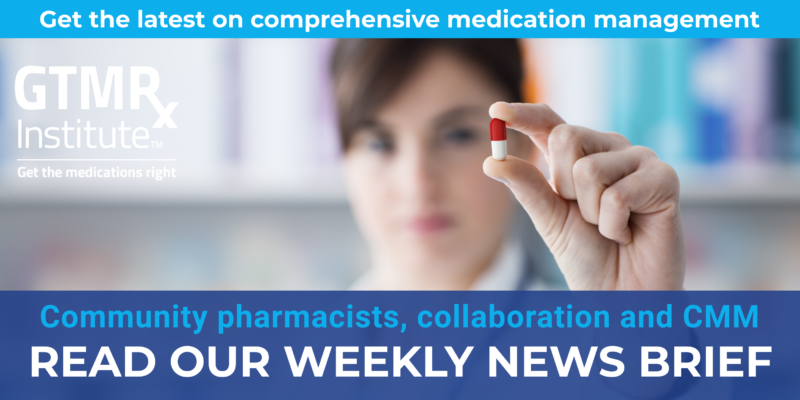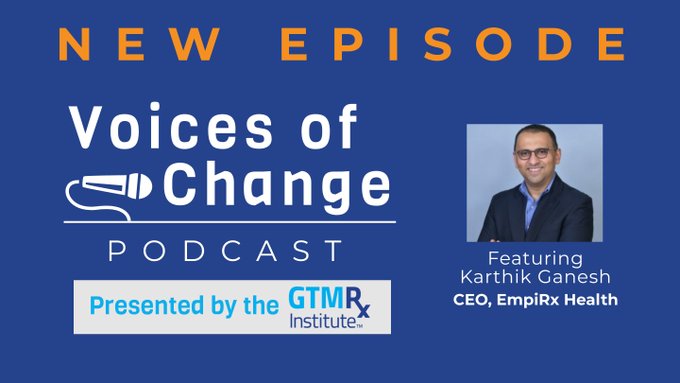Practice Transformation
Before prescribing, plan on deprescribing opioids
Before prescribing opioids, physicians should—in collaboration with the patient–develop a deprescribing plan, argues Jason Doctor, PhD, of the USC Schaeffer Center for Health Policy & Economics. It would lay out a specific path for reducing, and then eliminating, opioid use. “Properly structured, the plan will give the patient confidence that an opioid prescription may help relieve pain in the short run but will not lead to dependence or addiction in the long term. The goal is to produce a better outcome for the patient than is possible with continued opioid use.” (USC Schaeffer)
Time for one set of prices for commercial payers
A business that sits between consumers and what they value “will be quickly displaced,” except in health care, where “networks interposed between patients and their doctors are still going strong,” says Jim Jusko, founder and CEO of FireLight Health. But that will change: Whatever value provider networks may have offered “has long since been eclipsed by the financial hit suffered by patients when an out-of-network provider is unavoidable.” He calls on hospitals to offer one set of prices for all commercial purchasers. “American employers and families deserve transparency, fair prices and level playing fields when their healthcare services are bought and sold.” (Medical Economics)
Fixing what’s broken: Primary care
Commonwealth Fund’s podcast, The Dose, Asaf Bitton, MD, of Ariadne Labs, shared what it will take to rebuild the nation’s broken primary care system. But he started by talking about what went wrong. “So it starts with the way we pay for and value it [health care]. But it’s more than payment. It’s actually revolving around whether we prioritize sick care or promotive, proactive, preventive care. And I think that’s a big reason why primary care has sort of fallen behind in prioritization and in remuneration.” (The Dose)
Evidence & Innovation
Social needs and disparities in MA
Among older adults enrolled in Medicare Advantage, health-related social needs are common—in particular, financial strain, food insecurity and poor housing quality. There are also significant disparities according to race, socioeconomic status and sex. For example, elder adults enrolled in Humana’s MA plans experience high rates of health-related social needs. Almost half of Black enrollees report financial strain compared with 30% of white enrollees, and 20% of rural enrollees report poor-quality housing compared with approximately 17% of urban enrollees. (Health Affairs)
Community pharmacists, collaboration and CMM
Opportunities for collaboration between community and health-systems pharmacists are widespread, but each practice type has access to different tools to help patients. One area for collaboration is comprehensive medication management, Tamara A. McCants, PharmD, said during her APhA 2022 presentation. Community and health systems pharmacists can both develop a care plan to achieve optimal outcomes, ensure that the patient agrees with—and understands—their care plan, document steps and clinical status and conduct follow-up evaluations. She was realistic: “As a profession…we have to talk to each other about all of the biases we have,” she added. “We have to lay that all aside if real collaboration—successful collaboration—is going to occur.” (Drug Topics)
Policy Solutions
NASHP’s new cost tool
The National Academy for State Health Policy has developed an interactive Hospital Cost Tool that provides anyone from policymakers to researchers with insights into how much hospitals spend on patient care services. The tool also shows how those costs relate to both the hospital charges and the actual prices paid by health plans. (NASHP; the tool)
In Case You Missed It!
Celebrating 3 Years of Impact: GTMRx Institute Turns 3!
The Get The Medications Right Institute (GTMRx) is celebrating 3 years of impact and advancement of our goals. Now, more than ever we remain committed and anchored in our mission and goals to:
- A personalized, patient-centered, systematic and coordinated approach to medication use will vastly improve outcomes and reduce overall health care costs.
- We must align systems of care to integrate comprehensive medication management, engaging patients to ensure that they are willing and able to take those medications that are indicated, effective, and safe, to optimize their outcomes.
- We need immediate delivery system, payment, and policy transformation to streamline clinical trials and reduce costs of bringing drugs to market while enabling successful, broad-scale adoption of integrated, comprehensive medication management (CMM) services.
- Appropriate diagnosis and access to advanced diagnostics with companion/complementary and pharmacogenetics (PGx) testing is essential to target correct therapy.
- Success requires team-based, patient-centered care models that recognize appropriately skilled clinical pharmacists as medication experts who work in collaborative practice with physicians and other providers.
Thank you to all who have joined us and aided in our mission to advance personalized, patient centered, team-based care. If you aren’t already a part of the Institute, you can join us by agreeing to our belief statements here: https://gtmr.org/become-a-signing-member/
GTMRx Executive Roundtable
Optimizing medication use for accountable care success: Experts from CMS Innovation Center, VA, Cleveland Clinic, MHealth Fairview and other leading organizations share insights and offer concrete recommendations
What does accountable care look like? How does medication optimization support ACOs? Which business models will drive access, across the continuum of care, to team-based services that ensure safe, effective and appropriate use of medications and gene therapies?
These are just three of the questions experts considered at the April 13 GTMRx Executive Roundtable, co-hosted by the Institute for Advancing Health Value (formerly the Accountable Care Learning Collaborative).
The invitation-only virtual executive roundtable featured an array of experts, including speakers from the CMS Innovation Center, the VA, Cleveland Clinic and the American Association of Colleges of Pharmacy. Two CMS Innovation Center leaders kicked off the event: Sarah Fogler, PhD, Deputy Director, Patient Care Models Group, and Pauline Lapin, MHS, Director of Seamless Care Models Group.
Other presenters included Katherine Laurenzano, MD, medical director for Primary Care Monitoring and Oversight, Office of Primary Care, Department of Veterans Affairs; Erick Sokn, PharmD, MS, pharmacy director, Population Health – Cleveland Clinic; and Amanda Brummel, PharmD, BCACP, vice president of Clinical Ambulatory Pharmacy Services, MHealth Fairview
Breakout sessions offered the opportunity for facilitated discussion about pressing topics as population health, social determinants of health, data-driven transformation and risk management. The discussions — and the resulting recommendations — will guide our work as we develop our ACO toolkit. More broadly, it will guide us as we advocate for personalized, team-based, comprehensive primary care and specialist models that offer a more coordinated, systematic approach to medication use, thereby saving lives and saving money.
Thank you to all who joined the event and our robust discussions. If you missed it, you can learn more here.
GTMRx Workgroup Update
On April 13, Amanda Brummel, Pharm.D., BCACP, vice president, Clinical Pharmacy Services, Fairview Pharmacy Services, spoke to the GTMRx Best Practices and Innovative Solutions Subgroup meeting to inform their work on their ACO stakeholder toolkit. Dr. Brummel covered topics such as: ACO quality measures of success, benefits and investment needs for CMM, greatest challenges/pain points for ACOs, and more.

GTMRx Experts Reveal Health Care Must-Haves for 2022 and Beyond
Leading Institute for Comprehensive Medication Management Shares Strategies for Improving Inefficiencies in Health Care and Reforming Medication Management
“Collaborative practice agreements, using clinical pharmacists, who are right there in the community and know the patients. And specifically with homeless patients, I think there does need to be a little more outreach, the clinical pharmacist going out, through collaborative practice agreements, and seeing patients, and helping us manage their complex needs.. And because it is of course, a little challenging to expect homeless patients to visit clinics. But I’ll say this, they’re much more likely to respond if you meet them in the community rather than a traditional medical office practice.” – Michael Hochman, MD primary care physician and CEO of Healthcare in Action, SCAN’s Homeless Medical Group
Read more in our press release.
GTMRx in the News
While the health care industry reevaluates processes and care from the fallout of the COVID-19 pandemic, patient experience optimization has arguably never been more of a priority for the health community at-large. A big part of optimizing the experience includes paying attention to and changing how medications are selected, managed and monitored to avoid misuse, overuse or underuse.
Read more from GTMRx Executive Director, Katie Capps, in Healthcare Business Today.
The Right Drug Dose Now Act Introduced Feb. 28, 2022
On February 28, 2022, the GTMRx Institute issued a letter of support for the Right Drug Dose Now Act which was introduced on the same day. (See the press release from Congressman Swalwell here.)
GTMRx’s Precision Medicine Enablement via Advanced Diagnostics Workgroup invited congressional staff from the Personalized Medicine Caucus to present on draft PGx legislation underway on two occasions. The Personalized Medicine Caucus, co-chaired by Representatives Tom Emmer (R-MN) and Eric Swalwell (D-CA), engages members in a constructive dialogue about legislative and regulatory policies that can help realize the full potential of personalized medicine. The recommendations that came out of these discussions were put into our Letter to the Personalized Medicine Caucus Co-Chairs—Representatives Tom Emmer (R-MN) and Eric Swalwell (D-CA)—on the Right Drug Dose Now Act.
Some of the GTMRx recommendations to the Caucus included:
- Incorporating comprehensive medication management definition and language.
- Combining PGx testing with the CMM process of care.
- Expanding implementation of EHR guidelines, education awareness campaigns, and reporting.
- Clarifying the definition of adverse drug events.
A Comprehensive Overview of the Institute, It’s Vision, Mission and Leadership
The Get the Medications Right Institute is working to decrease misuse, overuse and underuse of medications and avoid waste by advancing comprehensive medication management to ensure appropriate and personalized use of medications and gene therapies. Learn more in this brochure.
Interested in supporting our work?
Please contact Jeff Hanson (e: [email protected])

Join us to be part of meaningful change
Irma, like many others, struggles as a result of our current trial-and-error approach to medication. That is why we advocate for a new, comprehensive approach to medication use and prescribing. As a non-profit 501(c)(3) and 501(c)(4) organization, the GTMRx Institute and Foundation relies on funding from our supporting members. We ask that you consider becoming a Supporting Signing Member so we can continue to provide relevant, timely resources to get the medications right!
If you’re interested in supporting the Institute or Foundation at a higher level, please contact us. Your dollars will bring about meaningful change for people like Irma.
AmazonSmile is an easy way for 0.5% of your qualified purchases go to the GTMRx Foundation at no cost to you. And signing up is simple—go to smile.amazon.com and select “Get the Medications Right Foundation” as your charity of choice. If you prefer to directly donate instead, you can do so here.
Adding the foundation on AmazonSmile will help us continue to provide no cost educational webinars, issue briefs, weekly news briefs and promote the need for transformation of our current system of medication use through social media campaigns.





